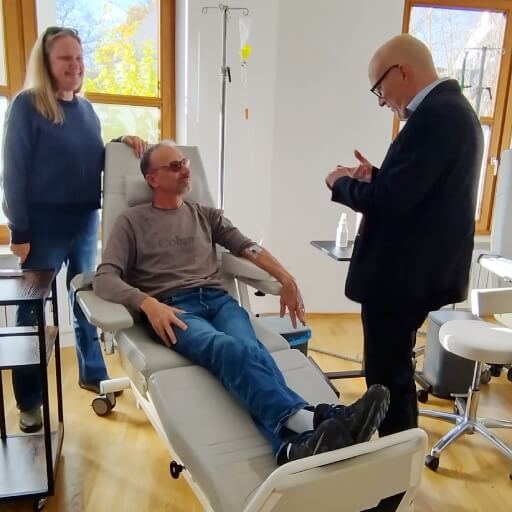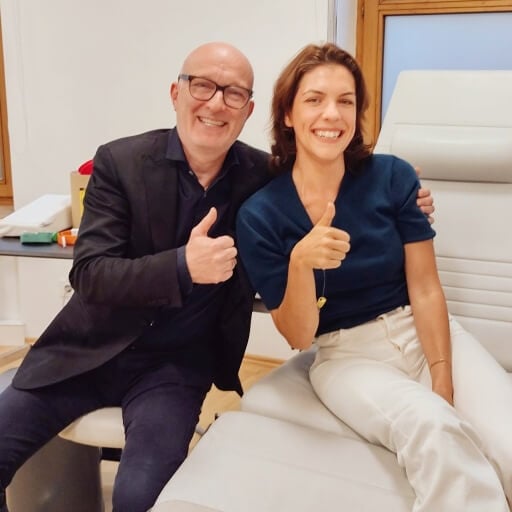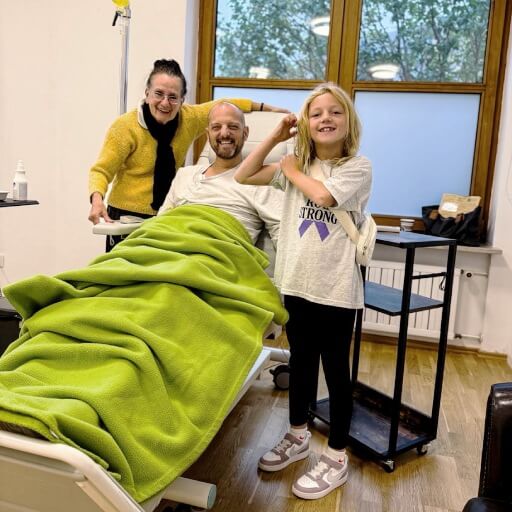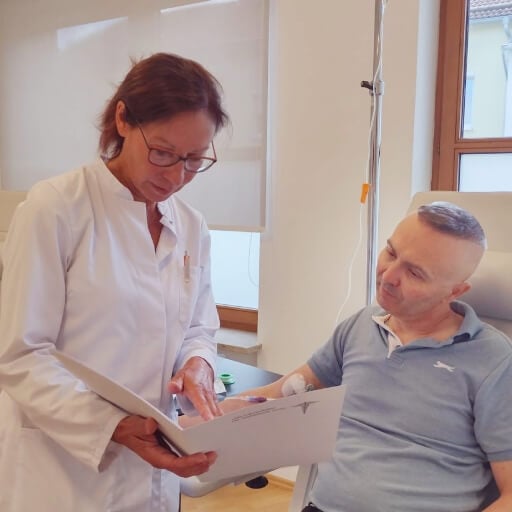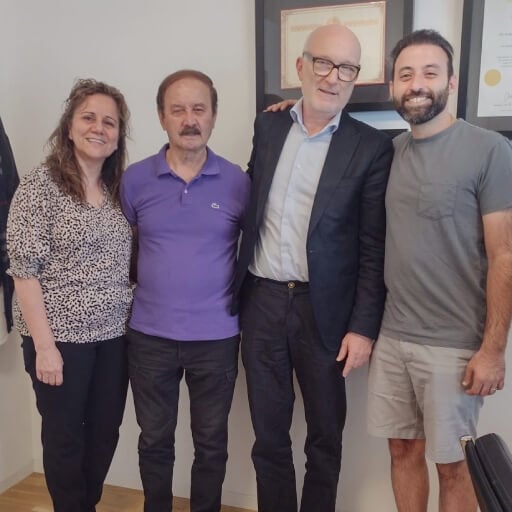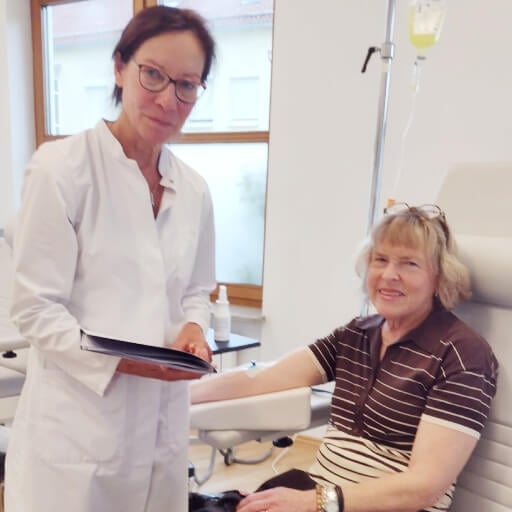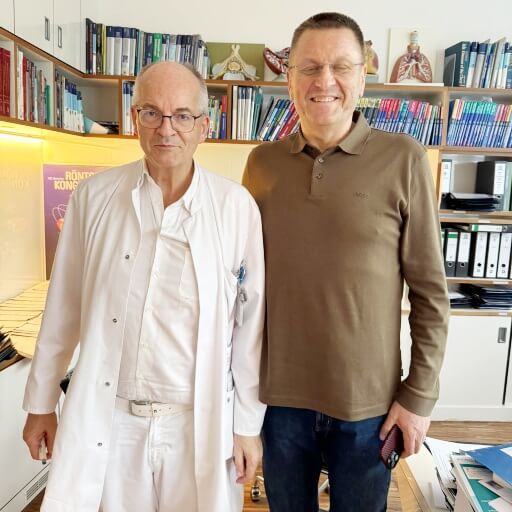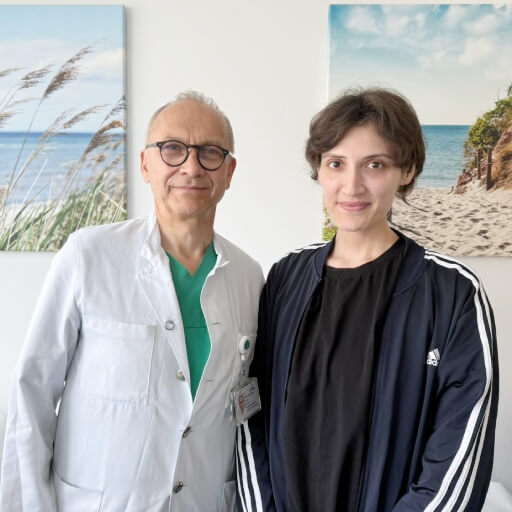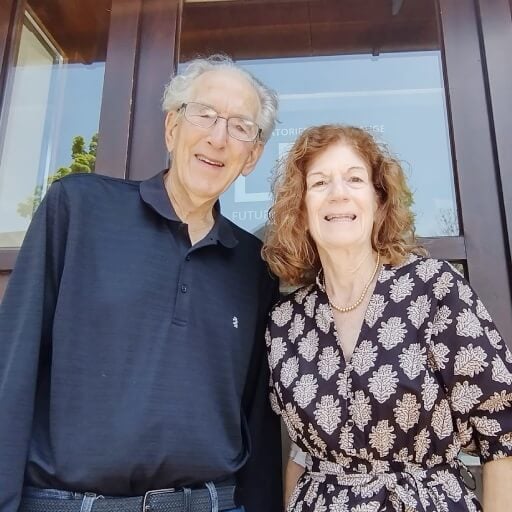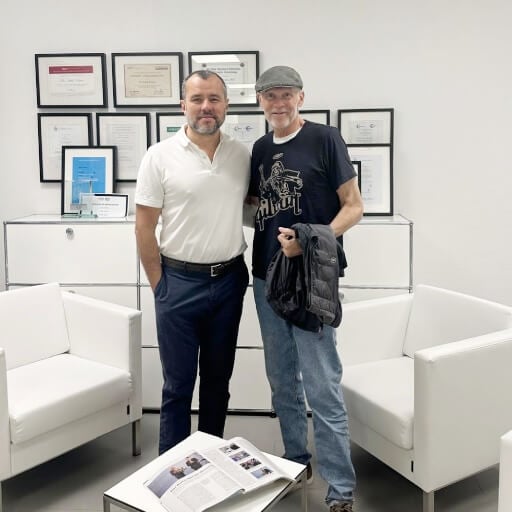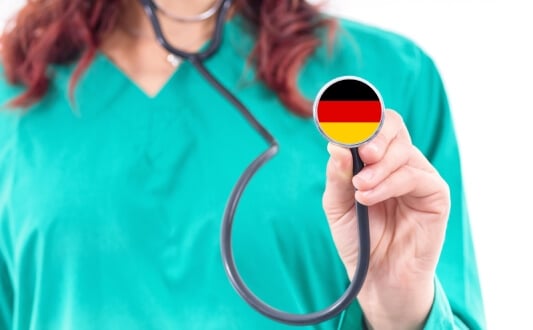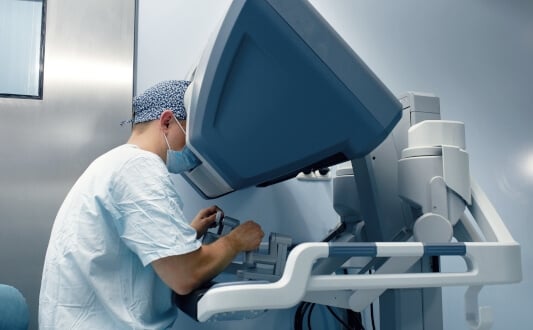Esophageal cancer is one of the twenty most widespread cancer types. The disease can develop at any age, but most often it is diagnosed over the age of 60 when treatment options are already somewhat limited by the patient's chronic conditions. Patients who undergo treatment in Germany have a chance to significantly increase their life expectancy through the use of sparing and effective methods. German specialists accurately assess the stage of cancer and the risks of various types of treatment, offering the patient the most suitable individual treatment regimen and improving survival by 30-70% compared to standard approaches.
How is esophageal cancer treated in Germany?
The success of the treatment of esophageal cancer directly depends on the timeliness of the disease detection, but this is not the only factor. In Germany, therapy is individually selected for each patient. It is developed with due consideration of a number of criteria:
- The stage of the oncological process, the presence of affected lymph nodes and distant metastases
- Tumor location – upper, middle, or lower third part of the esophagus
- Histological type of the tumor – squamous cell carcinoma or adenocarcinoma
- Primary tumor detection or recurrence after treatment
- Family history of esophageal cancer or other malignancies
Depending on the anamnesis and the results of the patient's examination, the doctor chooses a treatment regimen, most often a combined one. If necessary, a tumor board is involved that includes a surgeon, oncologist, gastroenterologist and other necessary narrow specialists. Here are some of the treatments available in Germany:
- Surgical treatment
- Radiation therapy and chemotherapy
- Targeted therapy
- Immunotherapy
Surgical treatment for esophageal cancer
This treatment suggests the removal of a tumor and the adjacent tissues. The volume of the surgery depends on the stage of the oncological process and the type of the tumor growth (superficial or invasive, with affection of the muscular layer of the esophagus). In patients with superficial tumors, at the early stages of oncology, endoscopic interventions are performed in German clinics. Doctors insert an endoscope through the mouth and use it to perform a mucosal resection or endoscopic submucosal dissection. After such operations, a person quickly recovers and has no restrictions in the future.
Unfortunately, most cases of esophageal cancer are tumors that require open surgery or inoperable tumors. The reason for this is the late disease detection: it is most often diagnosed at stages 3-4. In this case, an open operation is performed with the removal of the tumor, neighboring lymph nodes, and part of the stomach. German doctors pay special attention to the reconstructive stage of treatment: they use parts of the small intestine to rebuild the esophagus and ensure the normal movement of food through the gastrointestinal tract.
When radical treatment is not possible, palliative interventions are performed. They can improve the quality of life of the patient, but virtually do not affect the outcome of the disease. Usually, esophageal bougienage is performed with the installation of a stent. A stent is a tube that holds the shape of the esophagus and enables the patient to swallow food on his own.
Radiation therapy and chemotherapy for esophageal cancer
Radiation and systemic chemotherapy are used in combination. This is a neoadjuvant treatment before surgery or stand-alone treatments in unresectable cancer. They allow doctors to prolong a patient’s life for several months or years. Radiation therapy also helps to prepare the patient for surgery: after irradiation, the tumor shrinks, and it is easier for the surgeon to remove it.
In Germany, distant and contact radiation therapy (low and high-dose brachytherapy) is used. In the first case, doctors can simultaneously target the tumor and neighboring lymph nodes. In the second they can irradiate small tumors or eliminate swelling of the mucous membrane, which hampers breathing and swallowing.
Chemotherapy is carried out in cycles lasting 2-3 weeks. Most medications are administered intravenously, but there are also oral medications. The total duration of chemotherapy is 3-6 months, depending on the response of the tumor to chemotherapy and the general condition of the patient.
To gain deeper insights into how radiation therapy is implemented as part of esophageal cancer treatment by stage, we spoke with Dr. Peter Stoll, a leading radiation oncologist in Munich. His clinic has extensive experience treating various conditions, from esophageal leukoplakia treatment to advanced cancer cases. The interview below explores how modern radiation therapy techniques have revolutionized esophageal cancer treatment in Germany, offering new hope for patients at various stages. Dr. Stoll's expertise is particularly valuable as he discusses the integration of radiation therapy with other treatment modalities, showcasing why Germany has become a leader in implementing new treatment for esophageal cancer. His insights provide a practical perspective on how theoretical treatment approaches are applied in real clinical settings, particularly in cases where combination therapy offers the best outcomes.
"Mastering Modern Radiation Therapy" - Interview with Dr. Peter Stoll
Regional Chemotherapy for Esophageal Cancer
Concentration determines everything in chemotherapy. Double the drug level at the tumor site and cytotoxic effects don't just double – they multiply exponentially as cellular repair mechanisms become overwhelmed. Regional chemotherapy in Germany exploits this pharmacological reality through surgical techniques that create isolated treatment zones where drug concentrations surge to levels impossible systemically.
The procedure begins with femoral access – a small groin incision allowing catheter advancement under fluoroscopic guidance. Balloon catheters positioned in the aorta and inferior vena cava isolate chosen anatomical regions. For esophageal cancer, thoracic perfusion predominates – creating a closed circuit encompassing chest, mediastinum, and cervical structures where metastases commonly spread. Upper abdominal perfusion addresses hepatic involvement. Blood flows through the isolated zone via external circuits maintaining oxygenation while chemotherapy floods the region.
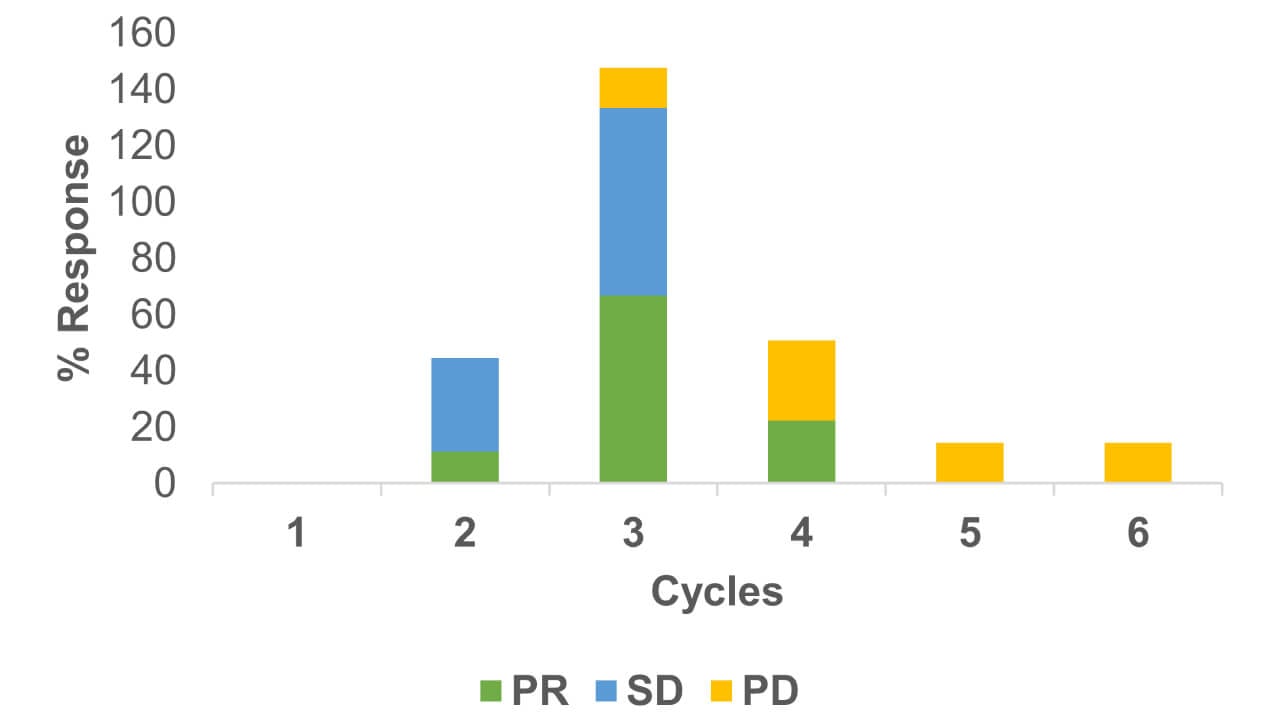
German centers transformed this concept into clinical reality through mastering two critical challenges. First: maintaining regional isolation during treatment requires precise balloon positioning and constant monitoring – skills honed through thousands of procedures. Second: such high drug concentrations would prove systemically lethal without filtration technology that strips residual chemotherapy from blood post-procedure. This detoxification step separates theoretical possibility from practical application.
Medias Klinikum Burghausen pioneered applying these principles to esophageal malignancies after decades perfecting techniques in other cancers. Their published cohort included only patients who had failed conventional therapy – progressive disease, exhausted options, facing palliation. Treatment produced 41% partial responses and 27% stable disease. [1]
Electrochemotherapy for Esophageal Cancer
Cancer cells resist chemotherapy through multiple mechanisms – efflux pumps that expel drugs, enhanced DNA repair, etc. Electro-chemotherapy bypasses most of these defenses by forcing direct cellular entry through electrically-created membrane pores that exist only briefly before lipid bilayers reseal.
Brief electrical fields destabilize cellular membranes and form transient nanoscale openings. Chemotherapy molecules – normally too large or charged to cross efficiently – flood inward during this permeability window. Penetration increases 70-80% compared to passive diffusion. Drug administration is timed to exploit this maximally, and general anesthesia ensures comfort during the 60-90 minute treatment. Most patients discharge within 48 hours.
German facilities charge for ECT €7,500-12,000 depending on complexity and protocol requirements. The cost of electrochemotherapy encompasses not just technology but accumulated expertise – knowing which electrode configurations work for different tumor geometries, understanding how vascularity affects response, recognizing when to combine with other modalities. The electrochemotherapy cost compares favorably against prolonged conventional regimens with cumulative toxicity.
German oncologists increasingly combine electroporation with regional perfusion techniques, creating synergistic effects neither approach achieves alone. Professor Karl Aigner pioneered much of this integration at Medias Klinikum Burghausen, developing protocols through decades of clinical refinement. His interview explores why combination approaches matter, how German centers achieve results difficult to replicate elsewhere, and what patients should understand when facing limited options.
Targeted therapy for esophageal cancer
Targeted therapy involves the use of drugs that suppress tumor growth and have virtually no toxic effects on healthy tissues. The action of this group of drugs is based on changes that are present only in malignant cells and are specific for esophageal tumors. Doctors may combine targeted therapy with systemic chemotherapy or give it to patients in whom chemotherapy no longer works.
Targeted therapy is mainly used for esophageal adenocarcinoma; such drugs for the treatment of squamous cell carcinoma have not yet been developed. In German hospitals, you can undergo treatment with several types of medicines:
- Drugs that affect HER2, a protein that is present in large quantities on the surface of cancer cells and stimulates their growth
- Antibody-drug conjugates affecting HER2
- Drugs that affect the VEGF receptor, a protein that stimulates the formation of new blood vessels to feed the tumor
- Epidermal growth factor receptor (EGFR) tyrosine kinase inhibitors, a drug that affects cells with abnormal gene fusion
Targeted therapy is a relatively new direction in oncology, which is actively used in German hospitals and demonstrates good therapeutic results.
Immunotherapy (dendritic cells) for esophageal cancer
Dendritic cell (DC) vaccination represents a groundbreaking approach in immunotherapy for esophageal cancer treatment in German clinics. This innovative therapy is based on cellular discoveries that were recognized with the Nobel Prize in Medicine in 2011, highlighting their fundamental importance to modern immunology and cancer treatment. This highly personalized therapy can be effectively utilized at all stages of cancer, making it a versatile treatment option. Importantly, this approach reduces cancer recurrence rates by up to 80% compared to conventional treatments. The procedure involves creating an individualized vaccine using the patient's own immune cells or tumor tissue, resulting in excellent tolerability and minimal side effects.
The DC vaccination program consists of two carefully planned stages. In the initial stage, patients undergo comprehensive evaluation including clinical examination and necessary laboratory tests, followed by blood or tumor tissue sampling for vaccine manufacturing. After a seven-day period, during which the personalized DC vaccine is created, patients receive their treatment in a convenient outpatient setting. This sophisticated approach allows patients to maintain their daily activities while receiving cutting-edge immunotherapy.
To gain deeper insights into dendritic cell therapy, we spoke with Professor Frank Gansauge, a renowned expert with over 22 years of experience in immunotherapy and DC vaccination. As the head of a leading German clinic specializing in dendritic cell therapy, Prof. Gansauge shares valuable information about this innovative treatment approach, its effectiveness, and its potential in cancer care.
Leading Immunotherapy Expert Prof. Frank Gansauge: "Revolutionizing Cancer Treatment with Dendritic Cell Therapy"
Additionally, immunotherapy is the first-line treatment in two cases:
- If the patient has been diagnosed with advanced esophageal squamous cell carcinoma. Immunotherapy is carried out regardless of the PD-L1 status, it is combined with chemotherapy.
- If an esophageal adenocarcinoma is rapidly progressing against the background of treatment, while PD-L1 is actively synthesized in the tumor cells.
PD-L1 is a component of the cell wall, a programmed death ligand. The action of most immunotherapeutic drugs is based on its activation. German oncologists also use immune checkpoint inhibitors. These drugs make it difficult for the tumor to disguise itself as healthy tissue and avoid attacks of the patient's immune system.
Benefits of diagnosing esophageal cancer in Germany
Both the diagnosis and treatment of esophageal cancer are more effective in Germany than in most other countries around the world.
The main benefits include:
- An examination in precancerous conditions (in men and in women). Most patients develop esophageal cancer due to precancerous conditions. Among them are leukoplakia, ulcers and scars, papillomas and adenomas, diverticula, and esophageal achalasia. A periodic preventive examination of risk group patients enables a timely detection of esophageal cancer, until doctors can perform radical surgery to treat it.
- High-precision cancer diagnostics. To diagnose oncological diseases, Germany uses highly sensitive diagnostic techniques. Therefore, esophageal cancer can be detected in any type of growth, even in the early stages. The country offers opportunities for preventive, non-invasive, and painless examinations of risk group patients.
- Quality surgical treatment. If the cancer is detected at its early stages, Germany can provide minimally invasive treatment. To this end, specialists use endoscopic surgery. The further development of the tumor requires open surgery, which should be performed by experienced surgeons. The extent of the surgical intervention is planned in such a way as to minimize the risk of tumor recurrence.
With precise assessment of cancer staging and treatment risks, German specialists develop personalized treatment regimens that improve patient survival rates by 30-70% compared to conventional approaches.
Clinics that treat esophageal cancer
In Germany, you can find a variety of clinics that provide esophageal cancer treatment. Most often, these are specialized departments of large university hospitals, where interdisciplinary tumor boards can take place. According to international rankings, these institutions are consistently rated among the best hospitals for treatment of esophageal cancer due to their comprehensive approach and exceptional success rates. Here are some of them:
- University Hospital Frankfurt am Main, Department of Gastroenterology, Hepatology, Pulmonology, Allergology, Endocrinology and Diabetology
- University Hospital Heidelberg, Department of Gastroenterology, Hepatology and Infectology
- University Hospital Hamburg-Eppendorf, Department of Gastroenterology, Hepatology and Infectology
- University Hospital Wuerzburg, Department of Gastroenterology, Hematology, Oncology, Hepatology, Infectology, Rheumatology and Clinical Immunology
- University Hospital Bonn, Department of Gastroenterology, Hepatology, Nephrology, Infectology, Endocrinology and Diabetology
Depending on the stage of the disease and the patient’s general health condition, doctors can use one of the following directions of the disease therapy (average prices are mentioned):
- Esophageal cancer treatment with endoscopic bougienage and stenting – 10,570 €
- Esophageal cancer treatment with chemotherapy – 9,540 €
- Esophageal cancer treatment with brachytherapy – 23,670 €
- Esophageal cancer treatment with proton therapy – 85,830 €
- Surgical treatment of esophageal cancer with resection and plasty using small bowel tissues – 43,110 €
- Dendritic cell therapy for esophageal cancer – 20,000 - 38,000 €
After completing the main course of treatment, a follow-up period starts: every 6 months, a chest CT scan and endoscopic examination are performed. A good addition would be oncological rehabilitation – a set of procedures that will allow a patient to quickly return to normal life.
Arrangement of esophageal cancer treatment in Germany
Esophageal cancer progresses very quickly. In a matter of weeks, it can become inoperable, meaning even the German specialists will not be able to significantly prolong the patient’s life. Consequently, it is very important to start treatment as soon as possible. Nonetheless, the problem is that it is almost impossible to arrange an urgent trip to Germany on your own. You will have to wait a long time for a response from the chief physician, as well as collect, draw up, and translate documents, and then wait for a long time to see an oncologist. Therefore, you can contact Booking Health. We will make an urgent appointment for you with a doctor in one of the best oncological German hospitals.
By cooperating with us, you receive a number of additional benefits:
- Choosing a hospital that specializes in the treatment of esophageal cancer
- Arranging a preliminary distant consultation with the attending physician, if necessary
- Arranging a tumor board
- Visa support
- Reducing medical costs by up to 50% due to the exclusion of taxes for foreign patients
- Insurance against unforeseen medical expenses
- Free doctor’s advice within the 3 months after your treatment program’s completion
- Services of an interpreter and personal coordinator, translation of medical documents
- Top-level service: booking hotels, plane tickets, transfers
We will contact you within 24 hours and help you receive urgent medical care in Germany. We work with cancer patients from 75 countries around the world and we know the specifics of the treatment organization in each case. Our team will carefully evaluate your case, provide a preliminary treatment plan, and guide you through each step of the organizational process. Early consultation allows us to optimize your treatment timeline and ensure all necessary arrangements are in place before your arrival in Germany.
Cancer Treatment Abroad: Patient Experiences with Booking Health
Frequently asked questions of our patients about esophageal cancer
Send request for treatmentTreatment in Germany is individually tailored based on the cancer stage, tumor location, and type. A specialized tumor board develops personalized treatment plans combining surgery, radiation, chemotherapy, targeted therapy, and immunotherapy as needed.
The University Hospital Frankfurt am Main, University Hospital Hamburg-Eppendorf and University Hospital Würzburg are among Germany's leading institutions for esophageal cancer treatment.
German hospitals offer comprehensive treatment options including minimally invasive and open surgical interventions, radiation therapy, chemotherapy, targeted therapy, and immunotherapy.
The disease causes difficulty swallowing and breathing problems. In advanced stages, patients may require stent placement. The disease is most often diagnosed at stages 3-4 – this is when symptoms are already present.
In Germany, esophageal cancer treatment costs vary by method, clinic and scheme. For instance, brachytherapy costs €23,670, and surgical resection – €43,110. More advanced proton therapy costs €85,830. Novel, safe and effective, dendritic cell therapy costs about €20,000-€38,000.
For esophageal cancer in Germany treatment is personalized based on tumor stage. Advanced options include: targeted therapy, immunotherapy and regional chemotherapy – these methods are often integrated with standard approaches (to maximize effectiveness).
Choose treatment abroad and you will for sure get the best results!
Authors:
This article was edited by medical experts, board-certified doctors Dr. Nadezhda Ivanisova, and Dr. Bohdan Mykhalniuk. For the treatment of the conditions referred to in the article, you must consult a doctor; the information in the article is not intended for self-medication!
Our editorial policy, which details our commitment to accuracy and transparency, is available here. Click this link to review our policies.
Sources:
[1] Vashist Y, Aigner K, Dam M, Gailhofer S, Aigner KR. Regional Chemotherapy Is a Valuable Second-Line Approach in Metastatic Esophageal Cancer after Failure to First-Line Palliative Treatment. Curr Oncol. 2022;29(7):4868-4878. https://doi.org/10.3390/curroncol29070386 [DOI]
National Center for Biotechnology
Read:
The cost of treatment in Germany
New promising option in GERD treatment – LINX Reflux Management System
Article menu:
Don't know where to start?
Contact Booking Health
